‘It’s a little kernel of perfection’
Across Britain, local groups welcome resettled refugees under a programme called Community Sponsorship.Photos by Andrew McConnell
Text by Matthew Mpoke Bigg
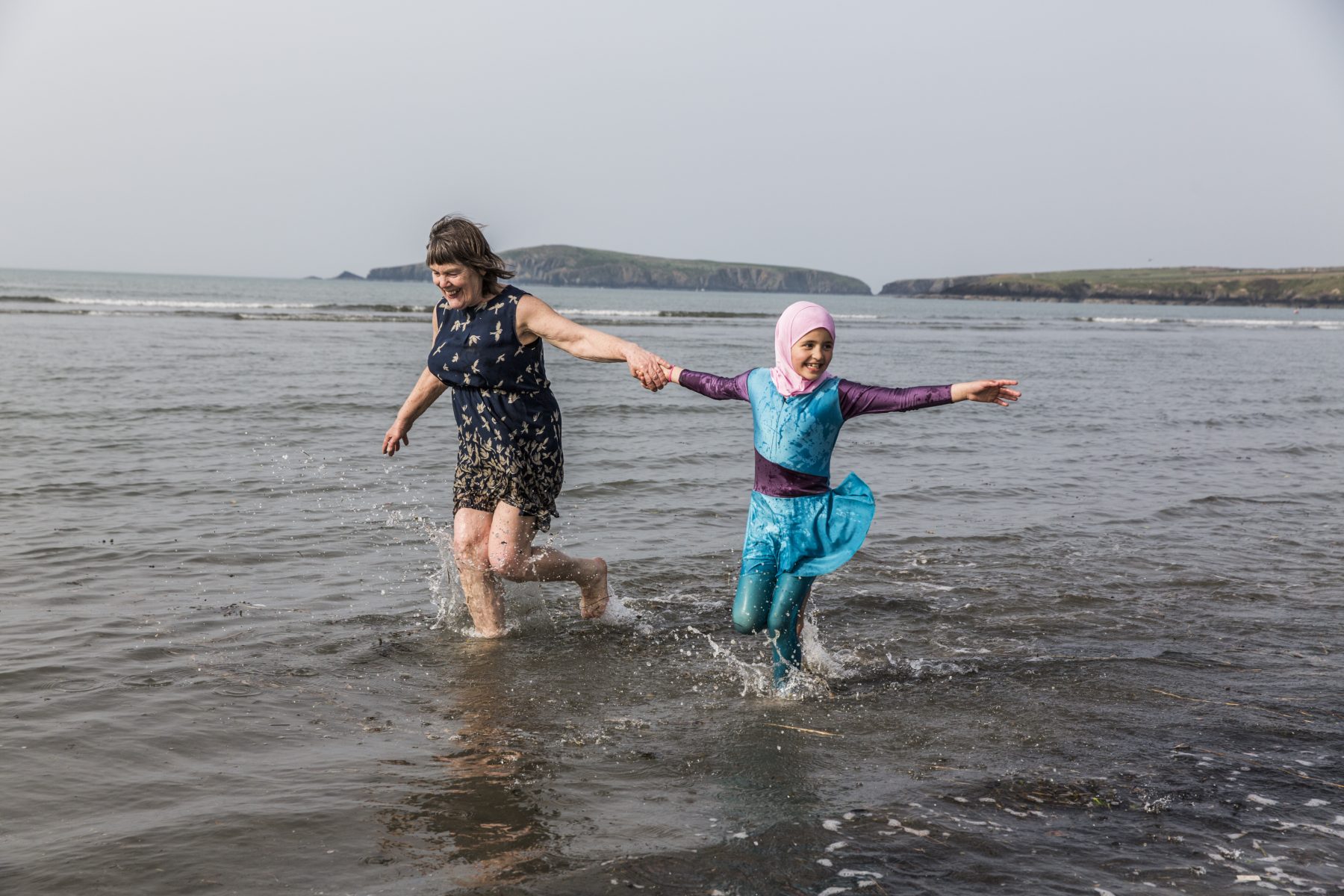
Vicky Moller and Sara Alchik play in the surf on a beach in south Wales. The British activist and the nine-year-old from Syria were brought together by Community Sponsorship. Sarah came to Wales via Lebanon in 2017 with her parents and two siblings.
‘It’s a little kernel of perfection’
Across Britain, local groups welcome resettled refugees under a programme called Community Sponsorship.Photos by Andrew McConnell
Text by Matthew Mpoke Bigg
Vicky Moller and Sara Alchik played in the surf on a beach in south Wales. The British activist and the nine-year-old from Syria were brought together by Community Sponsorship. Sarah came to Wales via Lebanon in 2017 with her parents and two siblings.
The Community Sponsorship initiative enables communities throughout the UK to welcome refugees who have arrived with government approval via resettlement. In Britain alone, there are around 90 projects with more in the pipeline. Faith groups, businesses and others are all involved.
There are also initiatives in Canada, Spain, Ireland and elsewhere.

Groups help the participants as they learn English, find schools, access heathcare, jobs and training as they settle. The sponsors gain something too: new friends and a chance to make a difference.
The programme was introduced in 2016 by the UK government in partnership with civil society and local authorities.
So far, around 450 refugees have benefitted and the government is encouraging more groups to step forward.
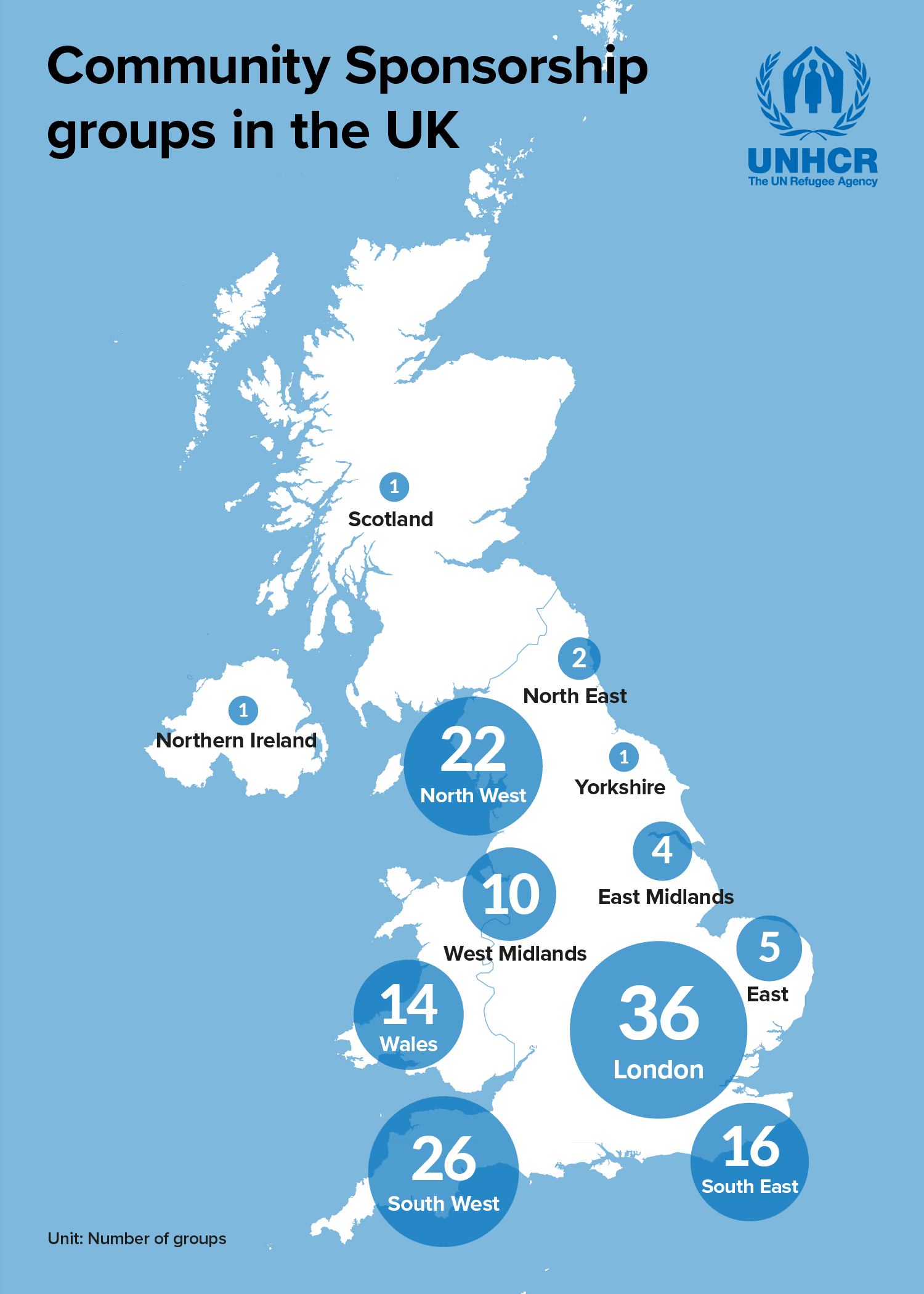
The families and their sponsors were photographed as part of the Ties that Bind project before the COVID-19 pandemic began. Fortunately, all involved are safe and well.
To find out more or get involved, visit RESET, the UK’s official Community Sponsorship training, support and advice provider.
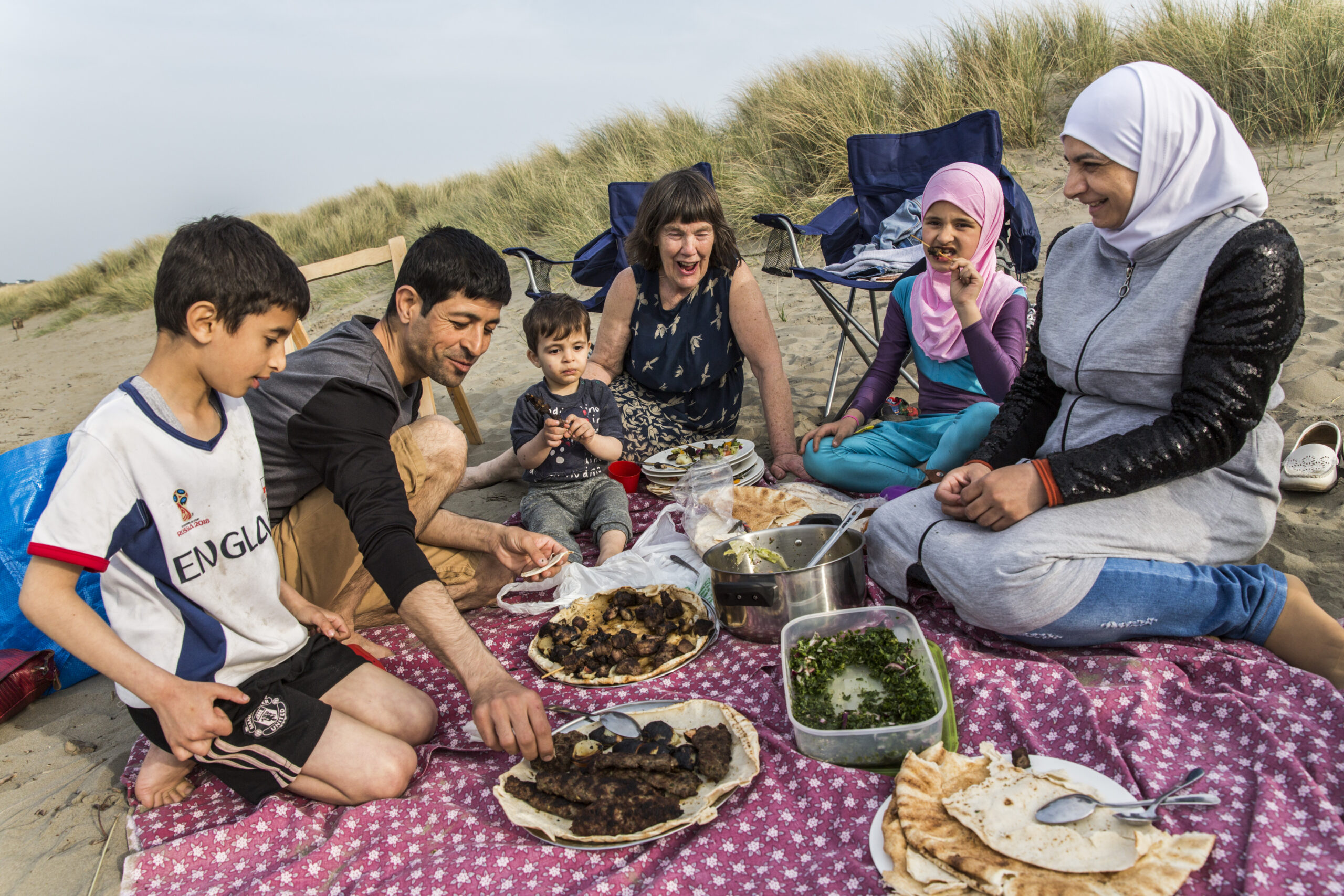
“Community sponsorship is very rewarding.”
Vicky started the Croeso Teifi community group that brought Sara’s family to Cardigan. Moller (centre) has a picnic at a beach in south Wales with the Alchik family, Muhaned, his wife Naheda, and their children (from left) Shadi, 8, Hadi, 1, and Sara, 9.
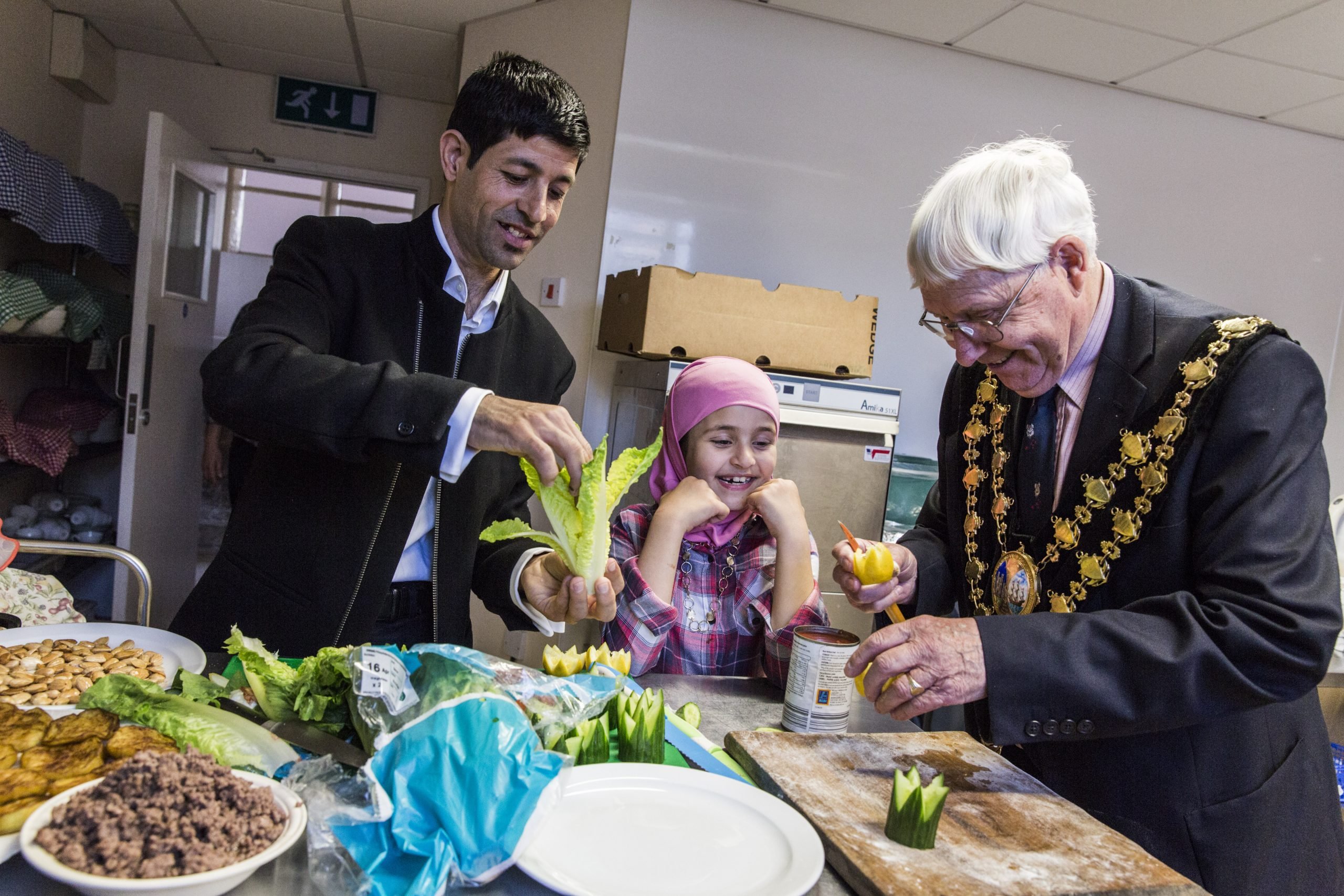
Muhaned Alchik and his daughter Sara, 8, helped Mayor John Adams-Lewis to prepare Syrian food at a church hall in Cardigan, Wales.
Community sponsors started work in Cardigan in 2016. The process involved forming a committee, setting up a charity, completing applications and visits by the UK Home Office.
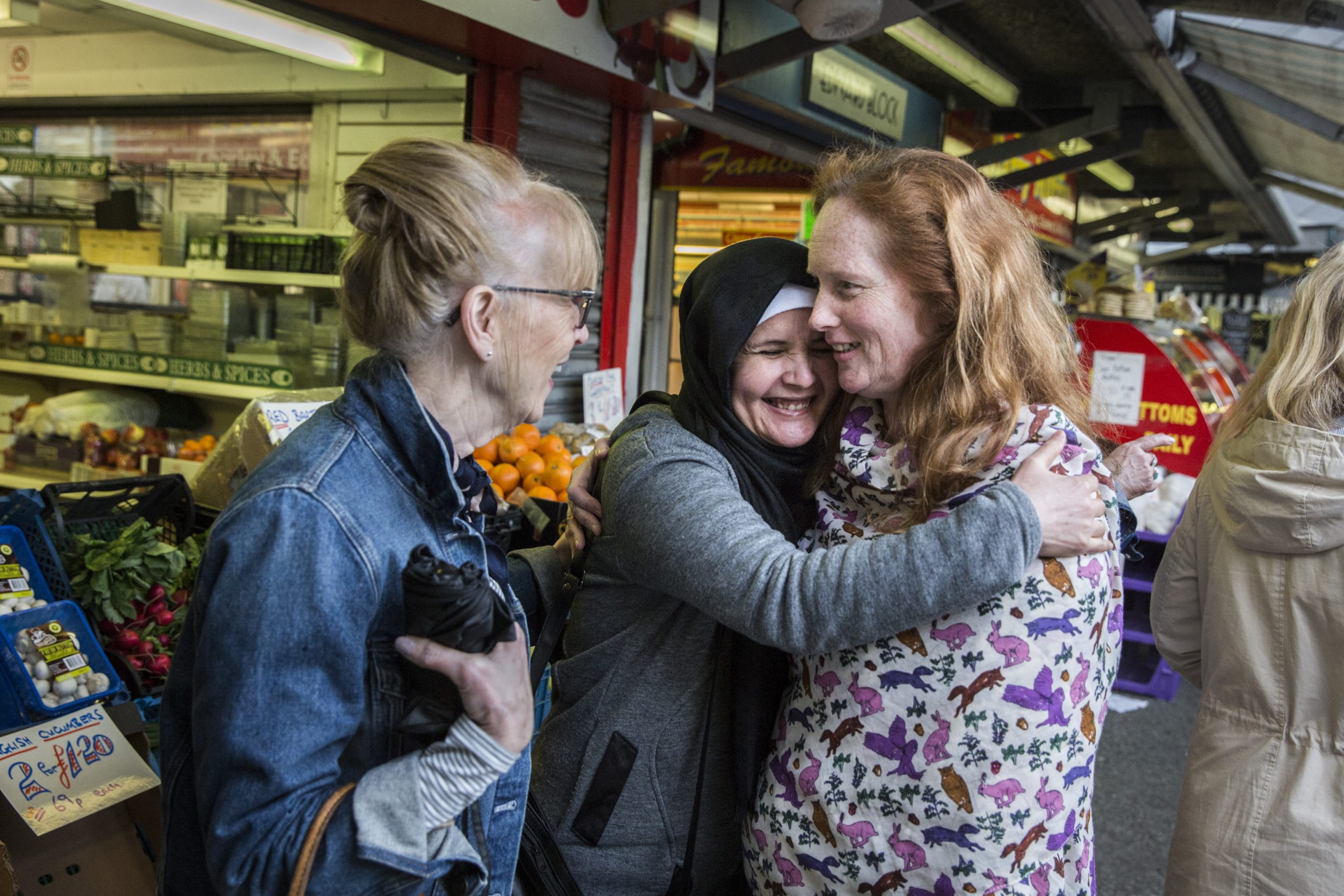
“My bigger dream was that this could be a great model for social change.”
Noura Daour, 44, hugged Felicity Brangan during a trip to the market in Bury, north-west England with fellow community support volunteer, Colette Pritchard (left).
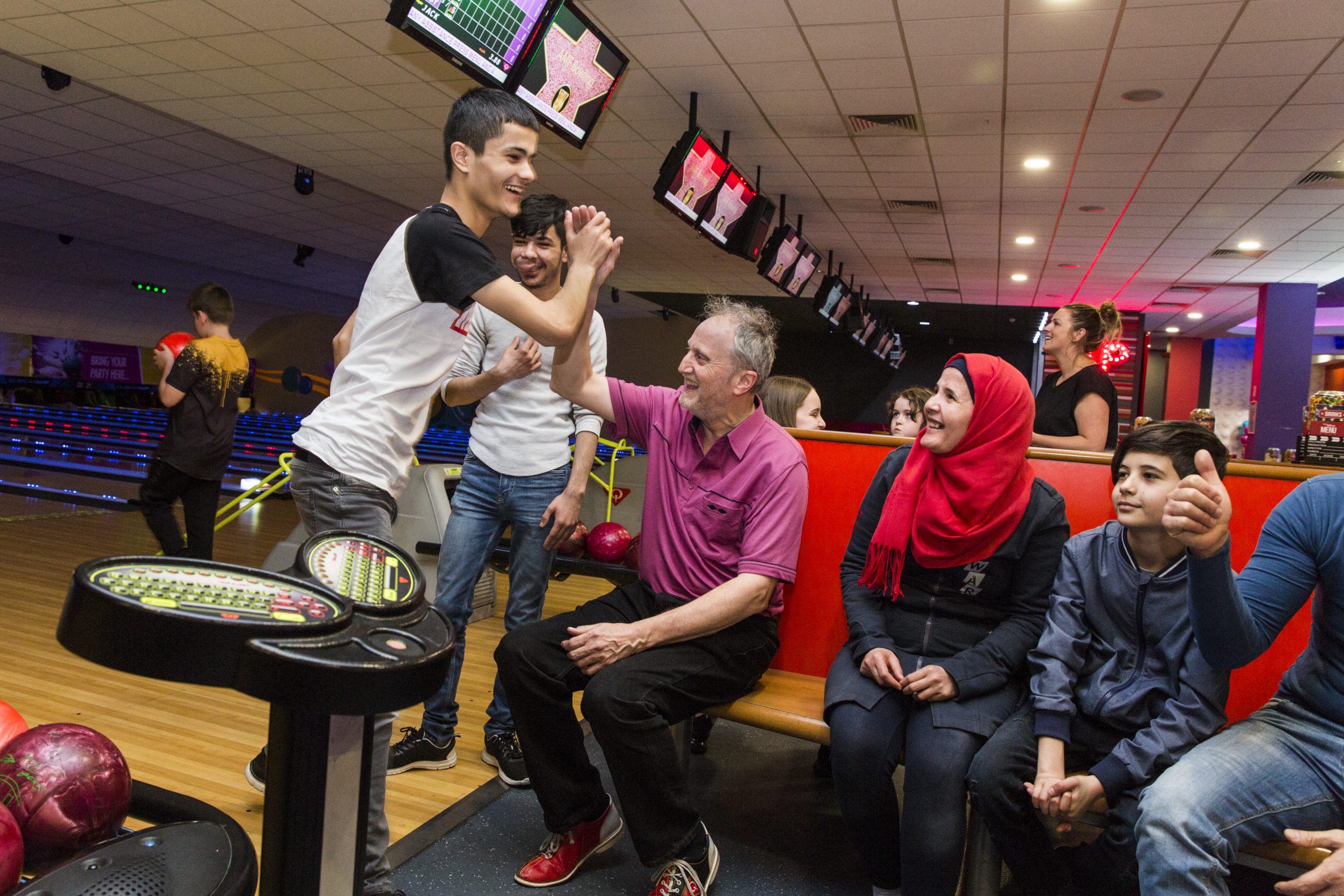
Haitham Daour, 16, gave Ged Cavanagh a high five after a strike at a bowling alley in Bury, north-west England. Before the Daour family arrived in the UK they had never tried ten-pin bowling. Before the pandemic, they went once a month with Ged and other community sponsors.
Ged, a retired IT manager, was an early volunteer when the idea of helping a refugee family was first put forward. The family arrived in Bury, near Manchester, in August 2018. They fled Syria’s war and spent seven years in Lebanon before being resettled in England.
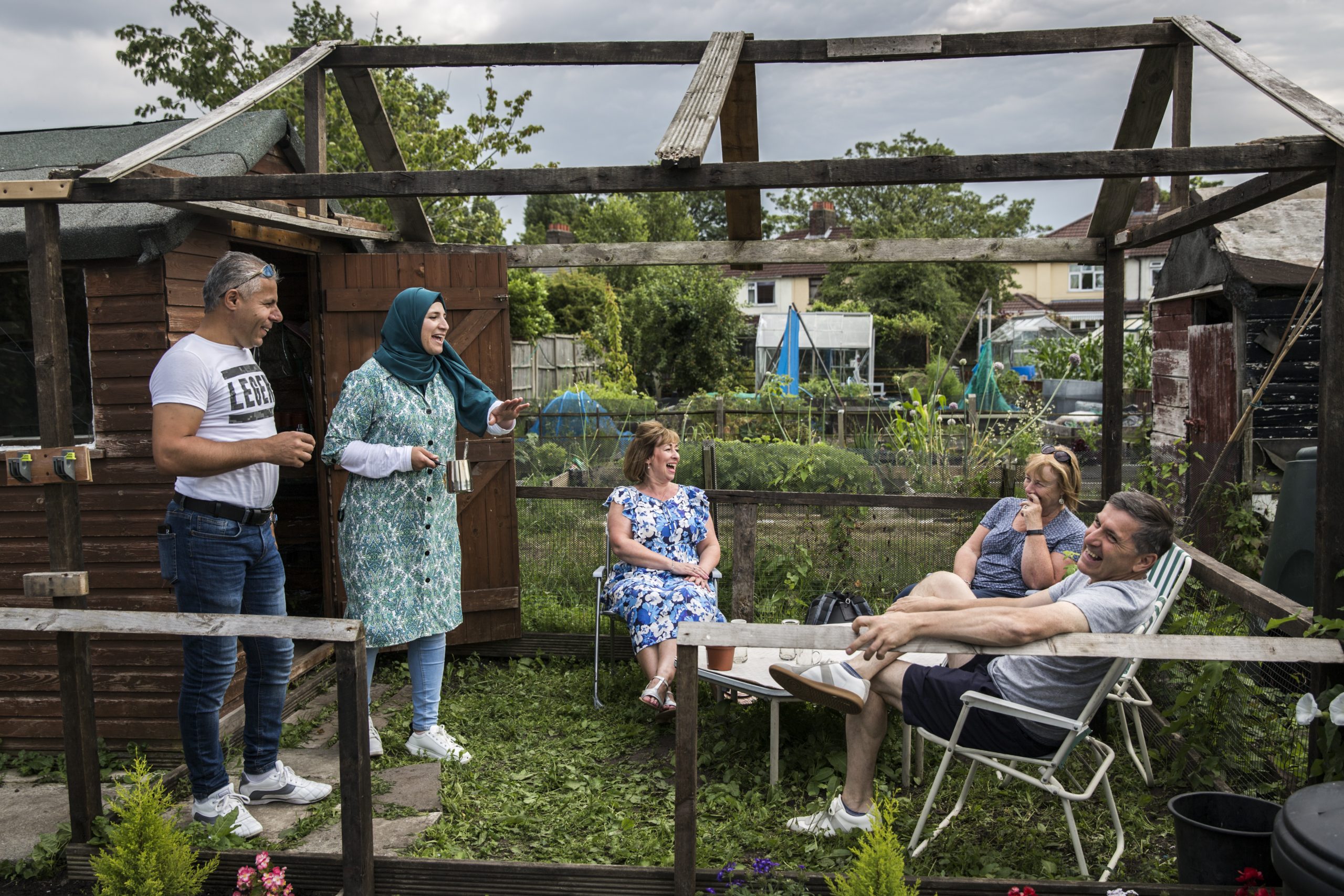
Ismael Khaled Jhayem (left) and his wife Ghofran have tea with members of the community support group, Paula Hobson, Tricia Brophy and Brian Hobson, at the couple’s allotment, in Liverpool. Thingwall Allotments found a derelict plot that the family has already transformed into a thriving vegetable garden.
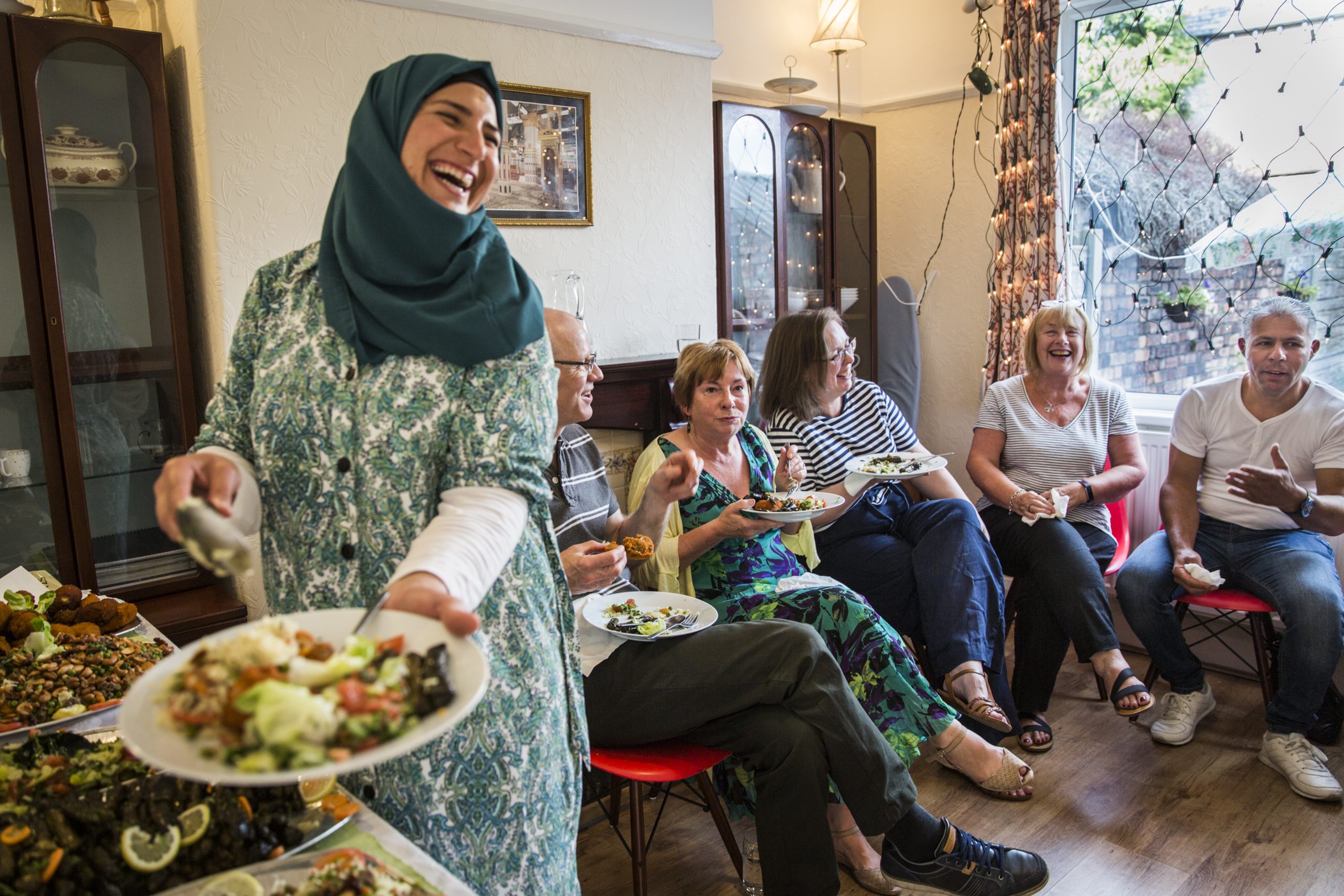
Ghofran Khaled Jhayem (left) and her husband Ismael (right) shared Syrian food with members of their community support group at the family’s new home in Liverpool.
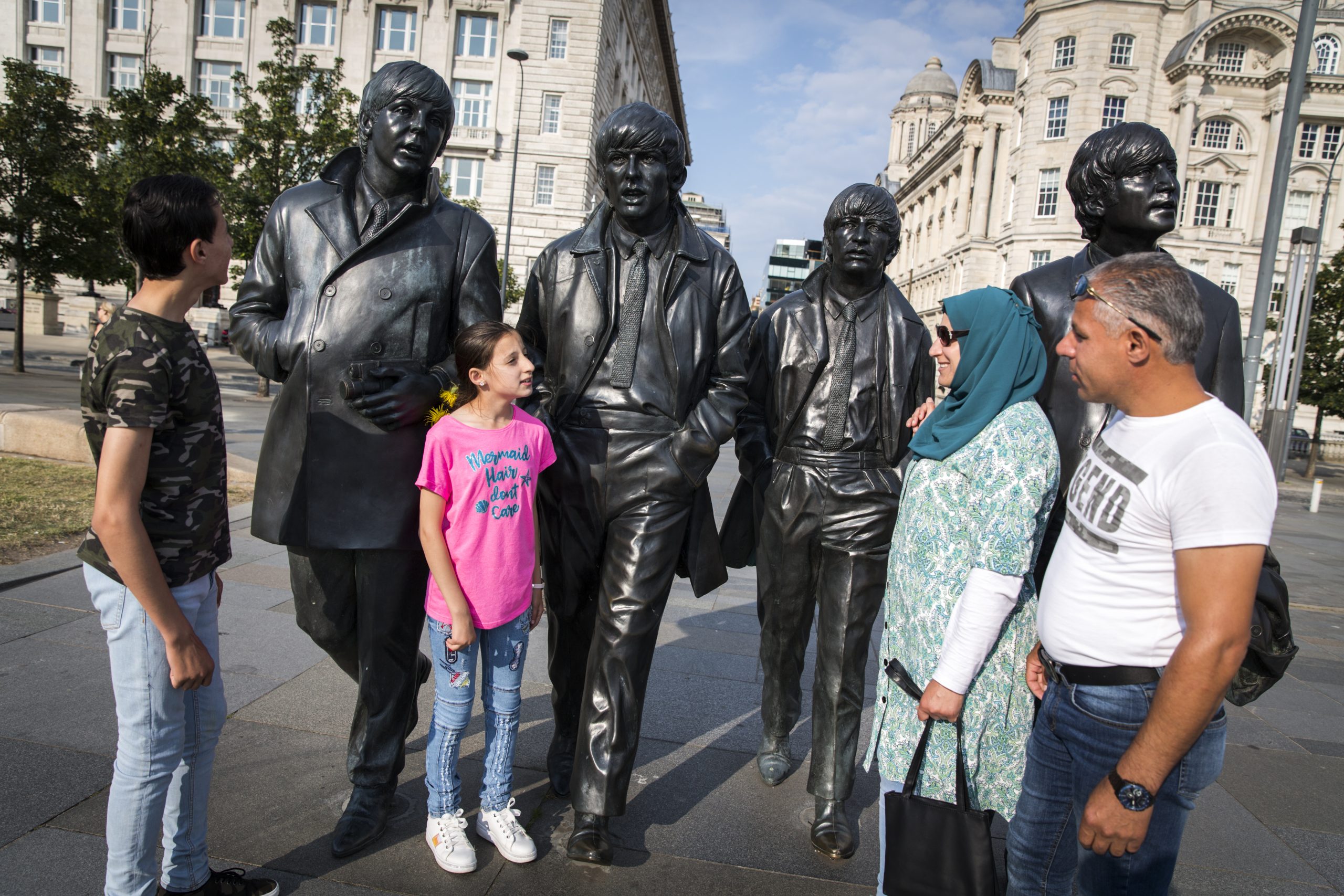
“The children have become happy. The welcome from people was great.”
The Khaled Jhayem family (left to right) Adel, Ola, Ghofran and Ismael, stand near The Beatles statue on the waterfront in their new home, Liverpool. Ghofran had feared moving the children to a new country, and culture, but after six months she says they are happy.
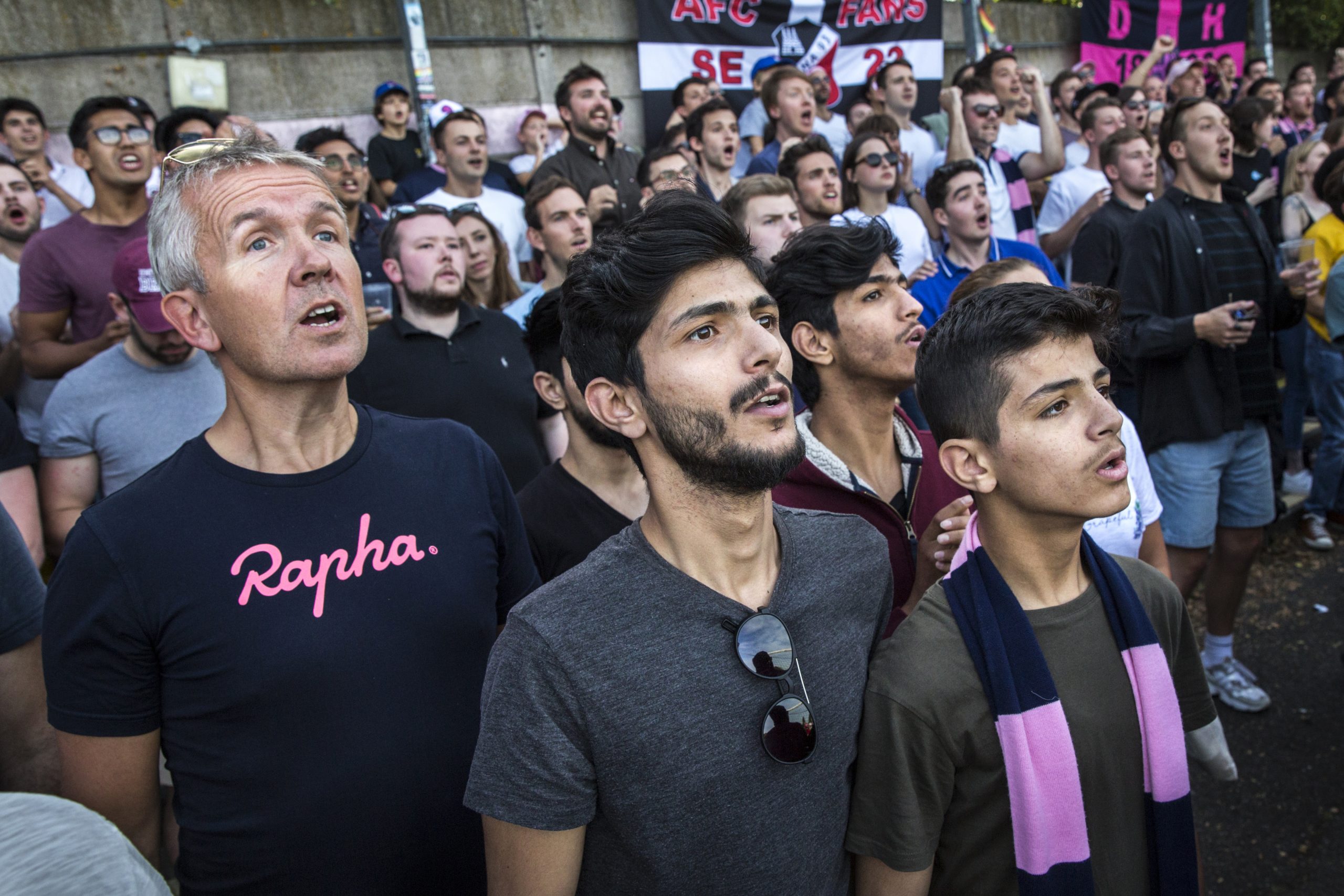
Mohammed, Islam, and Zain Al-Shaabin, and Jim Robinson (left) along with members of the Peckham Sponsors Refugees group watched their local football team, Dulwich Hamlet FC, in action on a Saturday afternoon in south London, United Kingdom.
The boys and their parents fled Syria soon after the start of the war and are now supported by Peckham Sponsors Refugees, one of the country’s largest groups.
To set up a group, communities must have a constitution, raise funds, identify housing, obtain local authority consent, develop safeguarding procedures, engage in training and complete an application. Participants say the process is getting easier.
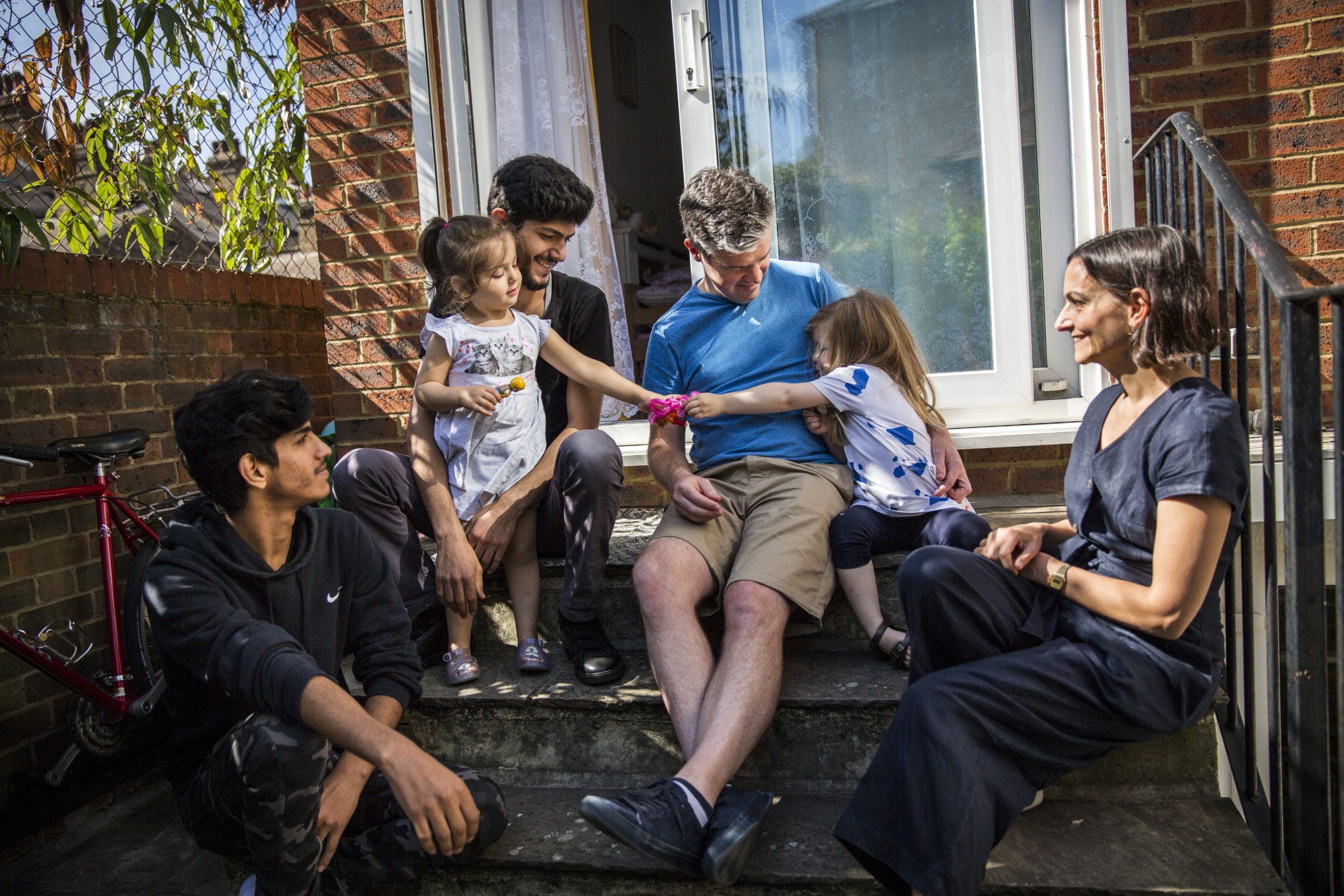
James and Claire are members of Peckham Sponsors Refugees, a group of local residents who came together to sponsor the Al-Shabbins resettlement in the UK. James, who speaks Arabic, is the group’s interpreter and Claire, a teacher, is head of the languages and looks after the family’s English lessons.
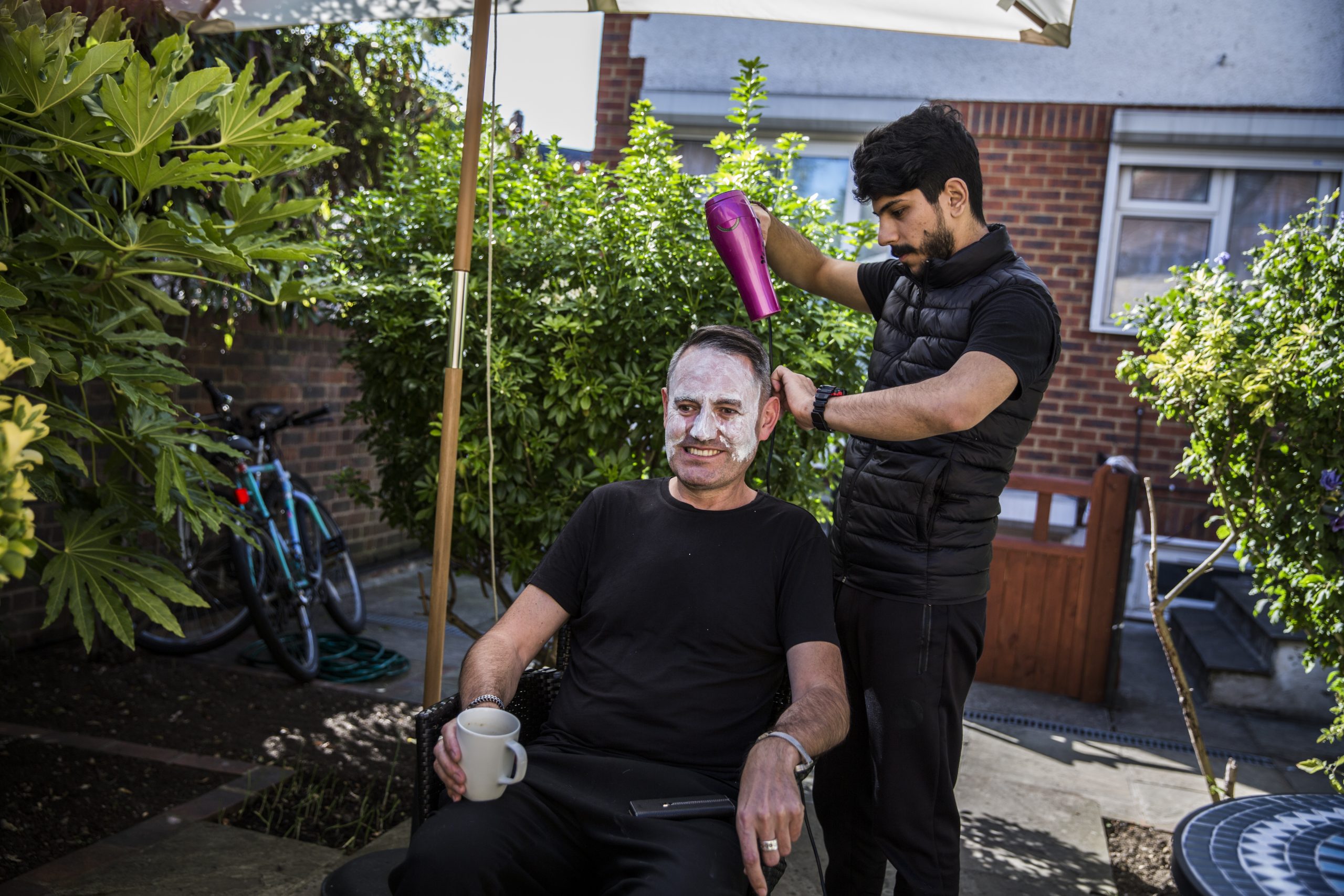
Lufty Al-Shaabin cut Tim Finch’s hair at the Al-Shaabin home in south London, United Kingdom. Lufty was a barber in Jordan where his family lived as refugees. Tim is a member of Peckham Sponsors Refugees.
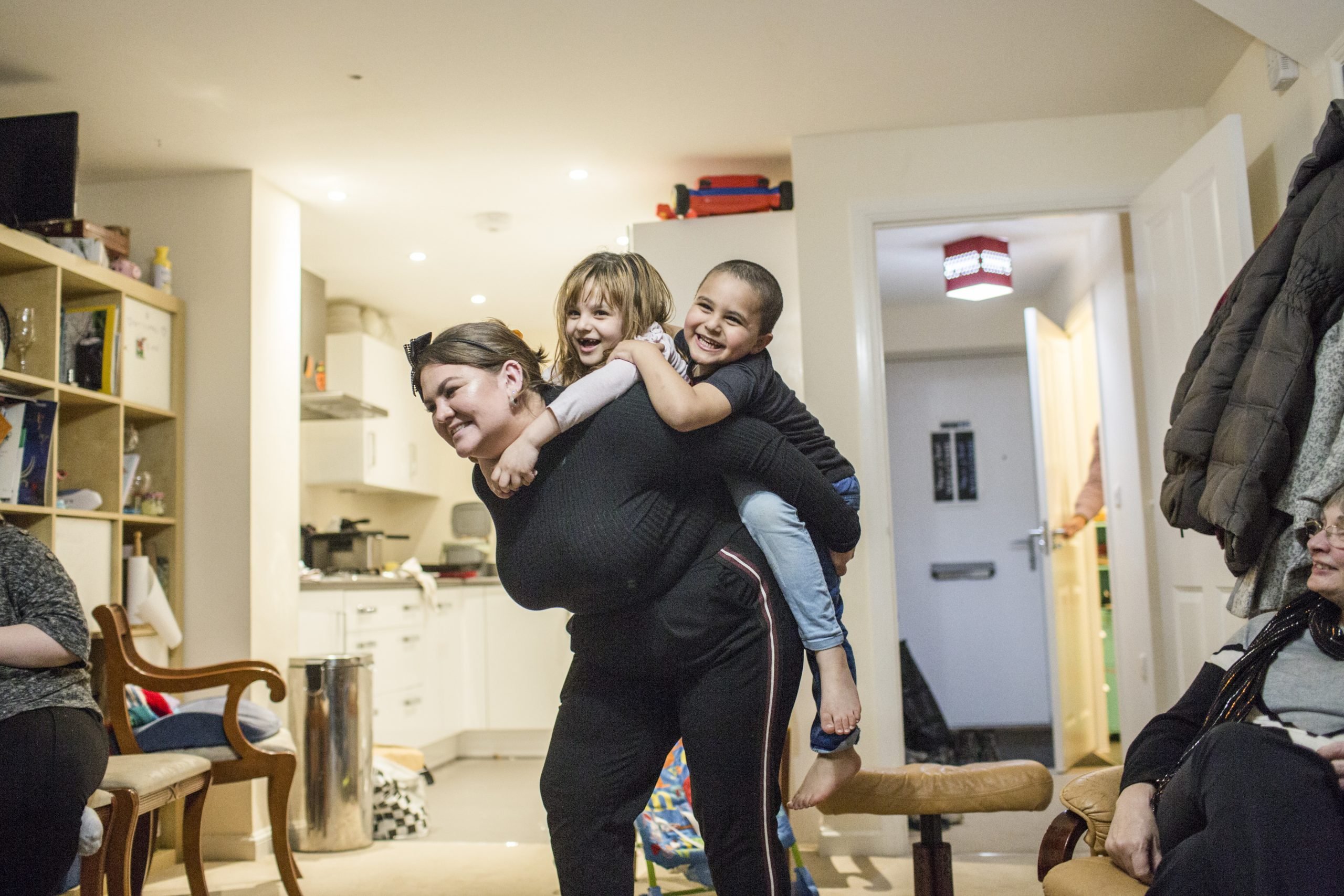
Amy Chapman played with Adbul, 4, and Noor, 6, at the Arnout family home in Ottery St Mary, Devon, south-west England. Amy is a friend of the family and often drops by to help the children read English.
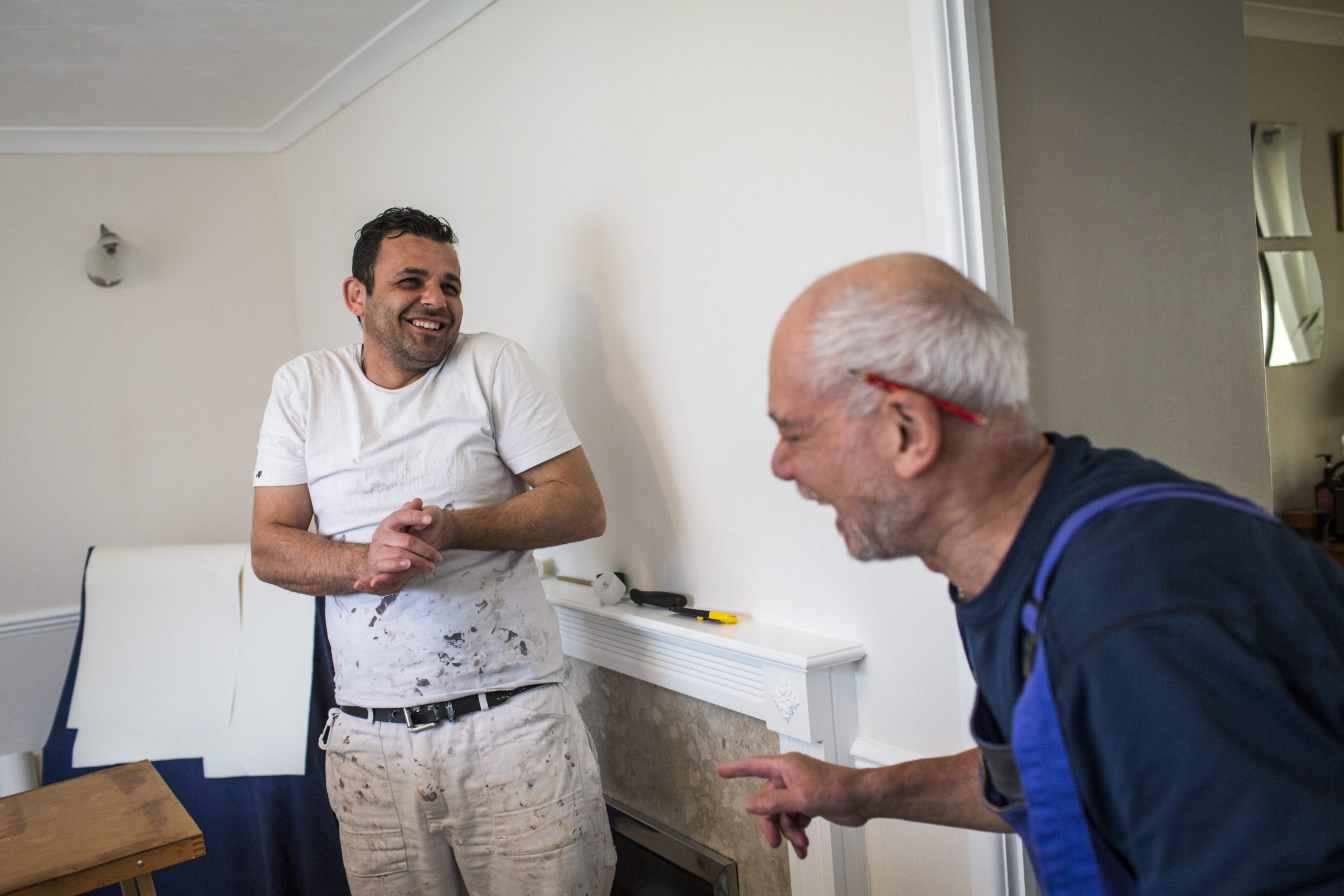
“When I sleep, I dream nice dreams now. Gone are the bad dreams. I try not to remember anything before 2018.” – Hani
Hani Arnout (left), 34, shared a joke with local painter and decorator Trevor Leahong as they painted a house together in Ottery St Mary, Devon. Trevor gives Hani work whenever he can.
